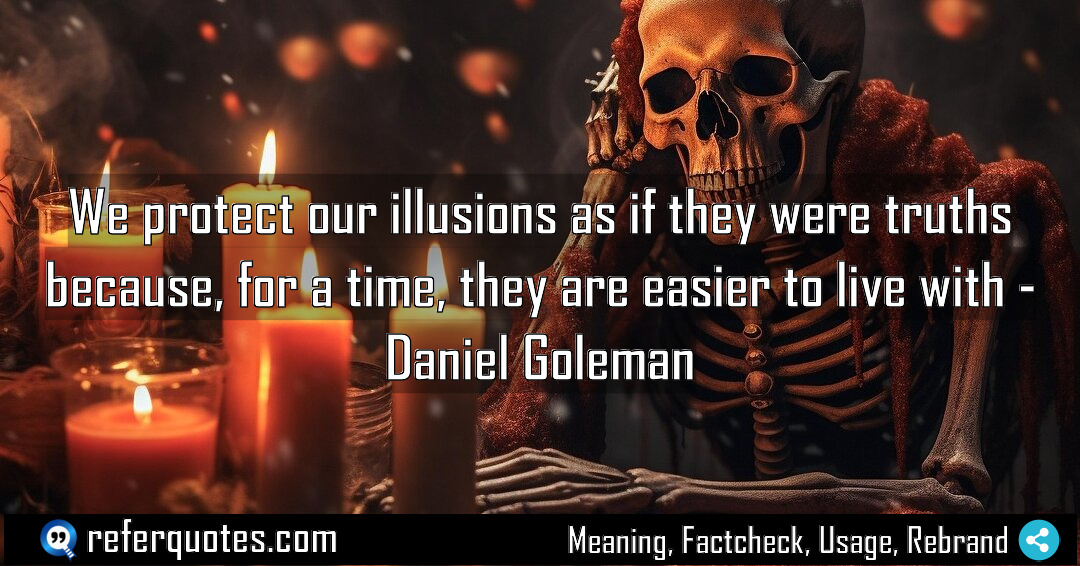We protect our illusions as if they were truths because, for a time, they’re just easier. It’s a psychological comfort blanket we all use to avoid facing harsh realities, even when we know deep down it’s holding us back.
Share Image Quote:Table of Contents
Meaning
This quote gets to the heart of why we cling to our self-deceptions. The core idea is that we fiercely guard our comfortable false beliefs because, in the short term, they protect us from psychological pain.
Explanation
Look, I’ve seen this play out so many times, both in my work and in my own life. It’s not that we’re stupid. It’s that our minds are built for efficiency, and sometimes the easiest path is the one of least resistance. We construct these narratives—”My job is secure,” “My relationship is fine,” “I’m not really unhealthy”—and we defend them like they’re facts. Because to dismantle them, to let in the actual truth, would mean we’d have to do something about it. And that action is often difficult, scary, or requires a massive change. So the illusion becomes a protective shield. A temporary one, sure, but a shield nonetheless.
Quote Summary
| Context | Attributes |
|---|---|
| Original Language | English (3668) |
| Category | Life (320) |
| Topics | comfort (14), illusion (22), truth (77) |
| Literary Style | reflective (255) |
| Emotion / Mood | sympathetic (1) |
| Overall Quote Score | 84 (319) |
Origin & Factcheck
This is straight from Daniel Goleman’s 1985 book, Vital Lies, Simple Truths: The Psychology of Self-Deception. People often misattribute deep psychological insights to folks like Freud or Jung, but this one is firmly Goleman’s, written well before his blockbuster Emotional Intelligence.
Attribution Summary
| Context | Attributes |
|---|---|
| Author | Daniel Goleman (125) |
| Source Type | Book (4032) |
| Source/Book Name | Vital Lies, Simple Truths: The Psychology of Self-Deception (61) |
| Origin Timeperiod | Modern (530) |
| Original Language | English (3668) |
| Authenticity | Verified (4032) |
Author Bio
Daniel Goleman is a psychologist and bestselling author whose journalism at The New York Times brought brain and behavior science to a wide audience. He earned a BA from Amherst and a PhD in psychology from Harvard, and studied in India on a Harvard fellowship. Goleman’s research and writing helped mainstream emotional intelligence, leadership competencies, attention, and contemplative science. He co-founded CASEL and a leading research consortium on EI at work. The Daniel Goleman book list includes Emotional Intelligence, Working with Emotional Intelligence, Primal Leadership, Social Intelligence, Focus, and Altered Traits.
| Official Website
Where is this quotation located?
| Quotation | We protect our illusions as if they were truths because, for a time, they are easier to live with |
| Book Details | Publication Year: 1985; ISBN: 9780743240156; Last edition: 1996 Harper Perennial; Number of pages: 288. |
| Where is it? | Approximate page from 1996 edition, Chapter 4: Social Blindness |
